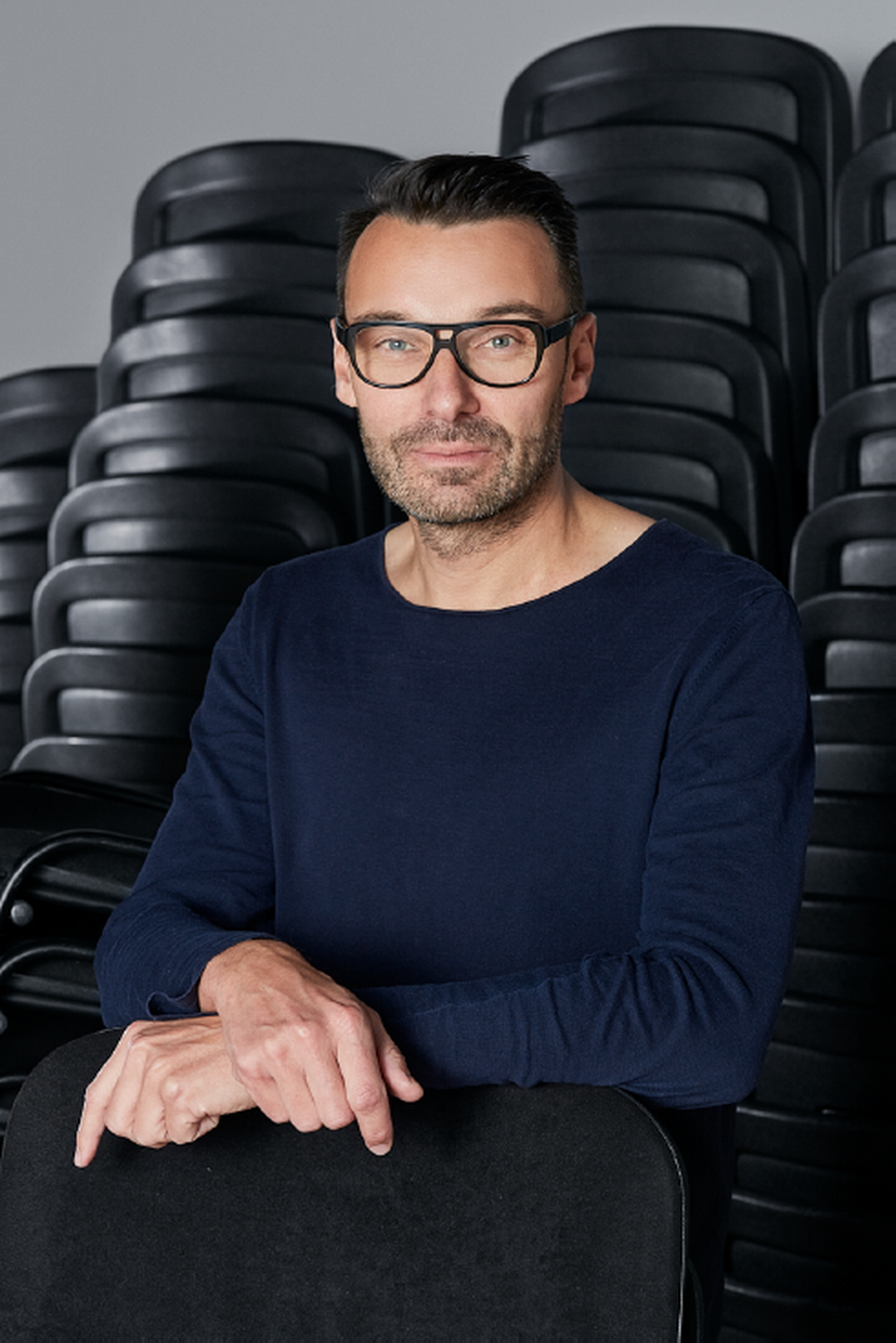2020 is a year of change and the 8th edition of Romanian Design Week explores this theme, so we were curious to find out how professionals from the creative industries interpret the idea of change today.
Their opinions can be found in the Possible Realities exhibition, part of @CHANGE, which takes place at Combinatul Fondului Plastic between 11th-20th of September.

Thomas Gheisler is an Austrian design curator and cultural producer. He curated international exhibitions for the Vienna Biennale, the London Design Biennial, and most recently for BIO| 26, the 26th Design Biennial Ljubljana. He is the director of the Museum of Decorative Arts – Dresden State Art Collections (SKD). Before that he was the director of the Werkraum Bregenzerwald – a regional crafts and trade initiative in the west of Austria – where he was leading exhibitions and other initiatives, overlapping innovative craftsmanship, design and architecture. He was also the curator and head of the Design Collection at the MAK Vienna. He played a pivotal role in establishing the Victor J. Papanek Foundation at the University for Applied Arts Vienna and is a co-founder of Vienna Design Week.
- How do you think the pandemic will change the world: the way we live or interact with others, with the cities we live in and with spaces in general?
A new term that coined during this pandemic has been “social distancing”: How can we be social by keeping distance? I assume, this was and will be the key question with the current situation. It was most inspiring to see all kinds of creative answers from all around the globe. Interestingly, most attempts came with traditional roots such as singing, dancing, narrating stories, etc. Of course, the digital sphere could help to overcome the distancing in some fields: we found new ways to interact and collaborate in the private and business sector. However, it also made clear that being “social” also means being physical and spatial in relation with each other and that we as humans can barely leave no matter what technical devices we have or will invent. A vast future for designers to think of beyond the so called “social design” aspect. Design has always been social oriented.
- How will the pandemic change the role of design in the future?
The current situation opens up many fields for designers to become active. We have witnessed an explosion of mask design for example, all kinds of solutions for living in isolation, which could be called “design for survival”. All in all to the background of ever shrinking resources and being less harmful to the planet. COVID19 was/is a test bed for what could become a “new normal” when talking about other pandemics or global crises such as climate change. For example what are mobility and traveling going to mean in the future? Will we ever do business trips or go on holidays like we did pre-Corona? A need to overcome a lot of rituals and routines and and for that we need design.
- Is creativity an essential tool for adapting and/or for change? And is the current trajectory of design leading us to a better world, in your opinion?
Of course, if not, I would not be interested in design and its powers.
- How was the design world affected by the pandemic and how can it become more relevant and more resilient?
Romanian Design Week seems to be among the lucky ones who can keep their doors open for the public. Most events, fairs, exhibitions got shutdown earlier this year -- some forever. At least everybody in the bubble of design has gotten more or less affected. We have recognized that everything is connected and that the existing mode and models may not have been as resilient as we thought. Design certainly has a say in this and thus is relevant – it’s about us to consider and act accordingly.
- What do you think will happen next in the design world?
My utopian ideal is that we learn from this. However, there is some dystopian thoughts that the “new normal” leads to a progression of false developments of before as compensation, some hyper models: hyper tourism, hyper consumption, hyper… hyper design.
Romanian Design Week 2020, an event presented by The Institute and UniCredit Bank, will take place between September 11th-20th, and this year will develop a special edition, designed to highlight the essential role of design in conceiving a better future, in a period in which creativity became more important than ever. The festival addresses CHANGE, the theme announced since the beginning of the year, updating its discourse and projects presented in accordance with the transformations and contributions brought by the creative industries during the pandemic, under the title CHANGE 2.0
